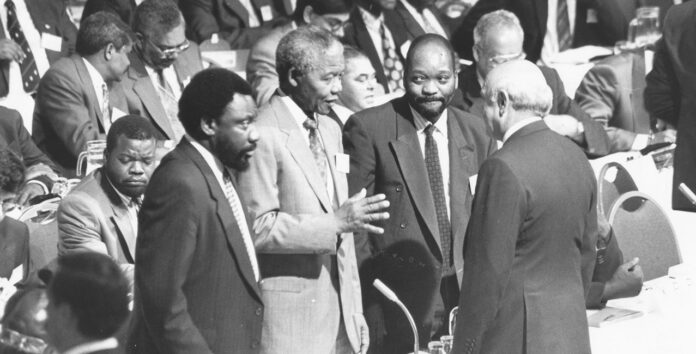South Africa, ever the hopeful nation with a flair for performance and an unfortunate addiction to round tables, is gearing up for its latest sequel in the long-running series of “Let’s Talk About It” – this time called the National Dialogue.
Yes, the republic is readying itself for what is being pitched as a bold leap towards solving the country’s most pressing social and political woes. But forgive some of us if we do not exactly burst into a spontaneous rendition of the national anthem.
Because while this initiative may come dressed in the language of democracy, unity and transformation, beneath the surface, the familiar scent of exclusion, obfuscation and political theatre is already wafting through the air.
Let us start with the guest list, shall we? One would imagine that a “national” dialogue would include, well, the actual nation. But early signs suggest that this might end up being more of an exclusive fireside chat among the well-connected – an ANC-adjacent soirée of policy wonks, political fixers and professional consultants who speak in bullet points.
You know, the same old choir singing from the same old hymn sheet, while the people in the back – the unemployed, the under-served and the underfed – are once again locked out of the room.
Inclusivity, it seems, is being treated like a garnish, not the main dish.
Then there is the opaque selection process – murky enough to make a foggy Joburg morning look transparent. Who decides who gets to sit at the table? What are the criteria? What mandate? Thus far, it is all about as clear as a parliamentary ethics report. And when transparency dies, public trust does not just fade – it evaporates.
And what would a national South African process be without a touch of political opportunism? Critics are already warning that this dialogue risks becoming a repackaged PR stunt – a political football ready to be booted through the goalposts of 2026. One can almost hear the campaign speeches being sharpened in the background: “We consulted the people!” (Translation: “We consulted our people.”)
Even if, by some miracle, this dialogue produces a coherent vision and consensus, we all know what is coming next: the implementation abyss. South Africa’s cupboards are groaning with glossy reports and final communiqués from dialogues past – documents that looked promising on day one and were dead on arrival by month three.
Implementation in this country is the bureaucratic equivalent of New Year’s resolutions: always made with great fanfare, rarely followed through.
And let us not forget the scope. While the nation teeters under the weight of corruption, youth unemployment, failing infrastructure, and deep structural inequality, there is concern that the dialogue will gently sidestep the real elephants in the room.
Expect a lot of noise about “social cohesion” and very little about land reform, economic redistribution, or holding power to account.
It is like putting a plaster on a bullet wound and congratulating yourself for the effort.
Finally, and perhaps most damningly, is the risk that the public – jaded, sidelined, and insulted one too many times – simply won’t care. South Africans have been talked at, talked over, and talked down to for decades.
The burden of rebuilding trust does not fall on the citizens – it falls squarely on the state and its elite architects of process. And if this dialogue is viewed as yet another elite echo chamber, it will be dead in the water before the first talking stick is passed.
In the end, the National Dialogue could still be a turning point – if it invites the real South Africa in, if it speaks truth instead of jargon, and if it leads to action instead of another press release.
But those are very big ifs in a country where “consultation” often means deciding in advance, and “accountability” is something everyone demands but no one delivers. So, for now, forgive our scepticism. We have seen this movie before, and the popcorn has gone stale.
• Themba Khumalo is a freelance journalist and columnist



